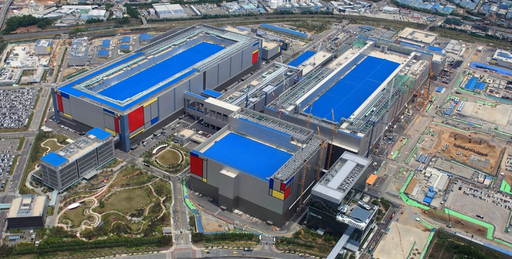


Samsung Electronics has initiated internal personnel reallocations to target the next-generation high-bandwidth memory (HBM) market, but concerns are rising within the organization regarding this decision.
According to the semiconductor industry on the 16th, Samsung's semiconductor division (DS) recently announced 'occasional job postings' for personnel in the process, equipment, and manufacturing sectors of its foundry business. The job postings are part of the internal "free agent" system, offering employees opportunities for job transitions.
This recruitment focuses on strengthening the competitiveness of the HBM business. The Memory Manufacturing Technology Center aims to enhance competitiveness for securing the next-generation HBM market, while the Semiconductor Research Institute focuses on strengthening leadership in HBM and package technology research and development. The Global Manufacturing & Infrastructure Division has also announced recruitment for HBM and new product measurement, analysis, and equipment technology strengthening.
Initially, Samsung planned to select a specific number of people for reassignment, but the method was changed to an open recruitment process in response to requests from some business units that need elite personnel for next-generation product development and mass production. Last year, some foundry personnel were reassigned to the Memory Manufacturing Technology Center, and now the reassignment of personnel to accelerate HBM4 development appears to be expanding.
The background of this decision lies in the fierce competition from SK hynix and Micron. Unlike Samsung, which has not yet passed the HBM3E quality verification (qualification test) due to issues such as heat generation, SK hynix and Micron are currently supplying HBM3E (5th generation HBM) products to their largest customer, NVIDIA.
To make matters worse, Samsung lost its top spot in the global DRAM market to SK hynix. According to market research firm Counterpoint Research, SK hynix's DRAM market share in Q1 of this year was 36%, while Samsung's was 34%.
As a result, Samsung has expressed its determination not to repeat the painful failure in the HBM4 market. Young-hyun Jeon, President of Samsung Electronics' DS Division (Vice Chairman), stated at last month's shareholder meeting, "We will significantly increase HBM supply compared to last year to strengthen our position in the market," and "We will develop and mass-produce HBM4 without any issues by the second half of this year."
Industry experts view Samsung's move as an unavoidable response. A semiconductor expert explained, "HBM4 is a key component that determines the performance of AI semiconductors, and competitiveness in this market is directly tied to leadership in the entire memory semiconductor industry. Focusing the company's capabilities on HBM4 to make up for the lag in HBM3E is an unavoidable choice."
However, the internal atmosphere remains chaotic. Management believes that the surplus personnel from the foundry, due to reduced utilization rates, can be strategically redeployed, but within the foundry business, there are concerns that the depletion of key talent could reduce technical focus, making competition with TSMC even fiercer. There are also reports that morale significantly dropped among employees who remained in the foundry division when some personnel were transferred to the memory division last year.
One internal source said, "It’s true that the internal atmosphere is uneasy as foundry personnel are repeatedly transferred to the memory division. The growing sense of relative deprivation due to wage gaps between business units could lead to conflicts between them if this continues."
ChatGPT를 사용하여 번역한 기사입니다.


 Copyright ⓒ 메트로신문 & metroseoul.co.kr
Copyright ⓒ 메트로신문 & metroseoul.co.kr
Copyright ⓒ Metro. All rights reserved. (주)메트로미디어의 모든 기사 또는 컨텐츠에 대한 무단 전재ㆍ복사ㆍ배포를 금합니다.
주식회사 메트로미디어 · 서울특별시 종로구 자하문로17길 18 ㅣ Tel : 02. 721. 9800 / Fax : 02. 730. 2882
문의메일 : webmaster@metroseoul.co.kr ㅣ 대표이사 · 발행인 · 편집인 : 이장규 ㅣ 신문사업 등록번호 : 서울, 가00206
인터넷신문 등록번호 : 서울, 아02546 ㅣ 등록일 : 2013년 3월 20일 ㅣ 제호 : 메트로신문
사업자등록번호 : 242-88-00131 ISSN : 2635-9219 ㅣ 청소년 보호책임자 및 고충처리인 : 안대성